"Give my son the measles. I'll take that way over autism any day."
"In a heartbeat," she adds later on.
Perhaps Jenny hasn't used her Google PhD to look up measles yet. Maybe she could ask her own pediatrician, Dr. Jay Gordon. On his own website, you'll find this:Measles still causes a million deaths worldwide even though a very effective measles vaccination program in the United States has just given us our third year in a row with fewer than 100 cases of measles in our country.
Has Jenny ever read about measles in developing countries? This blog, Nigeria Health Watch, discusses another outbreak there in December 2007. The author asks, "How many children will have to die from measles in Nigeria?" After reading that entry, Jenny may want to visit KidsHealth where she can read this information:
A child who is diagnosed with measles should be closely monitor for fever and other symptoms to detect any complications. In some cases, measles can lead to other health problems, such as croup, and infections like bronchitis, bronchiolitis, pneumonia, conjunctivitis (pinkeye), myocarditis, and encephalitis. Measles also can make the body more susceptible to ear infections or other health problems caused by bacteria.My child is prone to croup and bronchitis, she has been hospitalized for RSV, and for a bacterial infection called pseudomonas (which she caught during a hospitalization for surgery). I can't imagine ever saying I'd prefer measles, or pseudomonas, to autism.
Further information on measles, and the importance of vaccines, Jenny may want to visit the World Health Organization (WHO). WHO offers some startling facts:
- Measles remains a leading cause of death among young children, despite the availability of a safe and effective vaccine for the past 40 years.
- In 2006, it was estimated that there were 242 000 measles deaths globally: this translates to about 663 deaths every day or 27 deaths every hour.
- Vaccination has had a major impact on measles deaths. Overall, global measles mortality decreased by 68% between 2000 and 2006. The largest gains occurred in Africa where measles cases and deaths fell by 91%.

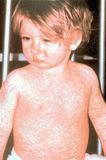
I hope many will come forward and speak out against Ms. McCarthy, and this outrageous statement she made. I also wish Jenny would study up on measles, and realize how ridiculous she is to ask her son be given measles, any day, over autism. It is ignorant, and even offensive (to those who have suffered and died from measles, to the 27 mothers who every hour lose their child to this disease, and to autistics who are here, alive on this earth).

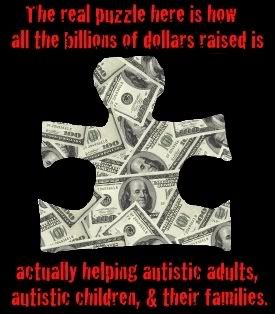





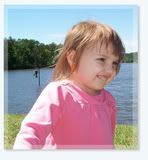

 This Way of Life
This Way of Life

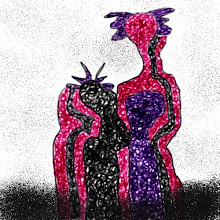

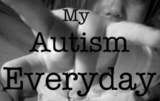





 "Autism is a way of being. It is pervasive; it colors every experience, every sensation, perception, thought, emotion, and encounter, every aspect of existence. It is not possible to separate the autism from the person."
- Jim Sinclair
"Autism is a way of being. It is pervasive; it colors every experience, every sensation, perception, thought, emotion, and encounter, every aspect of existence. It is not possible to separate the autism from the person."
- Jim Sinclair


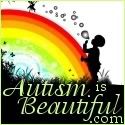






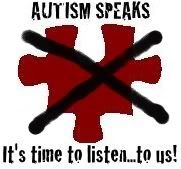












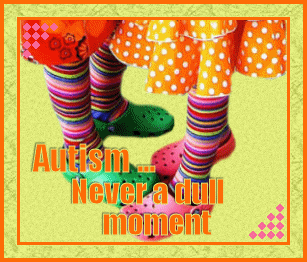

28 comments:
It is remarkable how confidently Ms. McCarthy speaks what should be "given" to her son, without even the vaguest thought that HIS own opinion in this respect would count more.
Measles used to be a common illness. Many people had measles & recovered without complications. Its my understanding that a natural immunity to a disease can be passed on to children by mothers that breastfeed. You compare measles in developing nations where there are issues of sanitation, nutrition & available medical care. "In some cases, measles can lead to other health problems, such as croup, and infections like bronchitis, bronchiolitis, pneumonia, conjunctivitis (pinkeye), myocarditis, and encephalitis." Those problems are common even without measles. Risk of measles vs. a lifetime of autism? I think a lot of parents of children with autism would trade it for measles. I would.
Unbelievable.
cvmom is mistaken: yes, a case of measles can be light. This is very, very often the case when a kid who has been vaccinated gets the disease. And that is most ALL kids who have gotten it in the last 40 years in the US. When a person who is unvaccinated gets it, it can also be a light case - or it can be disasterous. Heart damage is really not uncommon for this disease. What that used to mean, in a world before vaccines, was that many kids got this and lived, only to be sickly or "invalids" for the rest of their lives.
And with small babies, it often just kills. Same with contracting measles while pregnant.
The difference between the third world and here is that they haven't been vaccinated - the cases that we get around here are tiny little mild inconveniences because we have some immunity from the shots.
I have said it before, and I will say it again: SEE THESE MURDEROUS DISEASES firsthand. You will never think twice about the risks of vaccination. I dare you -- DARE YOU -- to spend one night with an infant with whooping cough. You will never be the same.
Growing up in the third world as I did, apparently, provides some opportunities for learning that you just can't get here in the good ol' US of A. Don't let that ignorance permit you to take chances that are much bigger than you understand.
maya m:
Great point!!
cvmom:
Anon said it best. We in the U.S. have no clue what measles can really do.
"I think a lot of parents of children with autism would trade it for measles. I would."
Really? Personally, I'd prefer to keep my child from getting a painful, possibly deadly, disease. I have seen firsthand with my child how being hospitalized for one thing, can quickly lead to another. Sitting in the PICU with your child basically in a coma, having no control over the situation, that is pure dread. I would wish that on no one. Based on my daughter's medical health, I can say without a doubt, that her vaccines have improved her health and without them, her life would be at risk. The threat of myocarditis and encephalitis from measles are nothing to take lightly.
timelord:
Exactly!!
marla:
Utterly unbelievable, indeed.
Anon:
Thank you for your firsthand accounts of dealing with these diseases. In this country, we have no clue what these diseases really look like.
The closest thing I can relate to this, is my mother having rheumatic fever as a child. Now that we have antibiotics, this illness is rare in the U.S. However, for my mother, it was a dreadful illness. She was given her last rites, and was near-death. She did recover, thankfully. However, the effects of Rheumatic fever are something she still suffers from in her 60's. She has major heart damage from it. People have no clue, and lack the respect for vaccines and antibiotics. I am incredibly grateful for the advances in medicine, and all that is available to us here in the U.S.
Thanks again for your information.
The fact that parents would rather their kids have measles than autism is something I'll never be able to wrap my mind around. Measles can be deadly, autism isn't. Yet some parents would rather deal with a disease that has the potential to really take their child away from them - permanently. It just baffles me.
Count me among those who audibly screamed at the TV when Jenny said give him Measles over Autism. WTF?
One more thing... I had measles as a teenager in 1983. I believe I had gotten the monovalent vaccine in the 70's. And still, it was, along with chickenpox, the worst disease I've ever had. The rashes in my throat were so painful I couldn't eat for two weeks. I was on a liquid diet. And isolated from friends and siblings; only my Mom, who had measles as a kid, would come into the room. She didn't mind her other children catching the other diseases, but she wouldn't mess with measles. I can only imagine how worried she was about me during that time. Luckily I was a strong girl with a good immune system so I survived if only 20 pounds lighter.
Measles or autism, why even pose the question? Taking the proper precautions to prevent measles does not increase the risk of autism. Autism is not a disease, it is a brain disorder. There is a variety of outcomes of both autism and measles. Here are some studies concerning outcomes for autism.
Causes of Death in and Autism
Robert M. Shavelle1, David J. Strauss1 and Jane Pickett2 Contact Information
(1) Life Expectancy Project, San Francisco, California
(2) Autism Tissue Program, Princeton, New Jersey
Abstract The objective of this study was to determine which causes of death are more frequent in persons with autism, and by how much, compared with the general population. Subjects were 13,111 ambulatory Californians with autism, followed between 1983 and 1997. The units of study were person-years, each linked to the subject''s age, sex, and cause of death (if any) for the specific year. Observed numbers of cause-specific deaths were compared with numbers expected according to general population mortality rates. Standardized mortality rates (SMRs) were computed for each mental retardation level. Elevated death rates were observed for several causes, including seizures and accidents such as suffocation and drowning; elevated mortality due to respiratory disease was observed among persons with severe mental retardation. Overall, excess mortality was especially marked for persons with severe mental retardation, but life expectancy is reduced even for persons who are fully ambulatory and who have only mild mental retardation.
Life expectancy of a 5 year old is reduced by a little over 6 years in names and about double that in females.
I also found:
Injury Treatment among Children with Autism or Pervasive Developmental Disorder
Suzanne McDermott1 Contact Information, Li Zhou2 and Joshua Mann1
(1) Department of Family and Preventive Medicine, Family Medicine Center, School of Medicine, University of South Carolina, 3209 Colonial Drive, Columbia, SC 29208, USA
(2) Department of Epidemiology and Biostatistics, Arnold School of Public Health, University of South Carolina, Columbia, SC, USA
Received: 17 November 2006 Accepted: 18 July 2007 Published online: 10 August 2007
Abstract This study examined the differences in the frequency and type of injury for children with autism and pervasive developmental disorder (PDD) compared with typically developing peers, when both groups are insured by Medicaid. The relative rate (RR) of emergency/hospital treatment of injury for children with autism or PDD compared to controls was 1.20 [95% Confidence Interval (CI) 1.04–1.39] after controlling for age and gender. Children with autism or PDD had a higher rate for head, face, and neck injuries (RR 1.47, 95% CI 1.13–1.90) and lower rate for sprains and strains (RR 0.54, 95% CI 0.32–0.91). Treatment for poisoning was 7.6 times as frequent, and self-inflicted injury was also 7.6 times as frequent for children with autism or PDD
Concerning life outcomes:
Asperger Syndrome and Autism: A Comparative Longitudinal Follow-Up Study More than 5 Years after Original Diagnosis
(Mats Cederlund Bibbi Hagberg, Eva Billstedt1, . Carina Gillberg and Christopher Gillberg)
Abstract Prospective follow-up study of 70 males with Asperger syndrome (AS), and 70 males with autism more than 5 years after original diagnosis. Instruments used at follow-up included overall clinical assessment, the Diagnostic Interview for Social and Communication Disorders, Wechsler Intelligence Scales, Vineland Adaptive Behavior Scales, and Global Assessment of Functioning Scale. Specific outcome criteria were used. Outcome in AS was good in 27% of cases. However, 26% had a very restricted life, with no occupation/activity and no friends. Outcome in the autism group was significantly worse. Males with AS had worse outcomes than expected given normal to high IQ. However, outcome was considerably better than for the comparison group of individuals with autism
In this study where a very poor outcome is defined as "Obvious very severe handicap, unable to lead any kind of independent existence, no clear verbal or non-verbal communication." included 56% of those diagnosed with autism including the atypical sort. None of the Aspergers Syndrome participants had very poor outcomes. But about 3% of those with Aspergers had a poor outcome which the study defined as "Obvious severe handicap, with either of, no independent social progress or presence of a major psychiatric disorder, but with some clear verbal or non-verbal communicative skills;" Overall about 97% of those with Aspergers had positive outcomes including about 23% who would not have met the positive criteria, but were accepted in a way that their handicaps were not problematic.
For the autism group about 24% had good outcomes including 17% where acceptance made their handicaps not problematic.
Another study
Autism after Adolescence: Population-based 13- to 22-year Follow-up Study of 120 Individuals with Autism Diagnosed in Childhood.
Eva Billstedt1, 3 Contact Information, Carina Gillberg1 and Christopher Gillberg1, 2
(1) Department of Child and Adolescent Psychiatry, Queen Silvia’s Hospital for Children and Adolescents, Göteborg, Sweden
(2) St George’s Hospital Medical School, London, UK
(3) Department of Child and Adolescent Psychiatry, University of Göteborg, kungsgatan 12, 411 19 Göteborg, Sweden
Abstract Background: Prospective population-based follow-up study of 120 individuals with autism followed from childhood to adulthood. Methods: Individuals with autism, diagnosed in childhood, were followed prospectively for a period of 13–22 years and re-evaluated at ages 17–40 years. The instruments used at follow-up were the DISCO, WAIS-R, WISC-III, Vineland Adaptive Behavior Scales, psychiatric-medical examination and GAF-scale. A set of criteria was used for the classification of outcomes, taking into consideration employment, higher education/vocational training, independent living and peer relations. Results: Six of the 120 (5%) had died at the time of follow-up, and six declined participation. Overall outcome was poor in 78% of cases. Only four individuals were independent albeit leading fairly isolated lives. Childhood IQ-level was positively correlated with better adult outcome, as was the existence of some communicative phrase speech at age six years. Conclusions: Children with autism as diagnosed in the 1960s, 1970s, and 1980s may have an even worse psychosocial outcome than previously believed.
And another
Change in Autism Symptoms and Maladaptive Behaviors in Adolescents and Adults with an Autism Spectrum Disorder
Paul T. Shattuck1 Contact Information, Marsha Mailick Seltzer1, Jan S. Greenberg1, Gael I. Orsmond2, Daniel Bolt3, Sheilah Kring3, Julie Lounds3 and Catherine Lord4
(1) University of Wisconsin, 533 Waisman Ctr., 1500 Highland Ave, Madison, WI 53705 , USA
(2) Boston University, Boston, MA, USA
(3) University of Wisconsin, Madison, WI, USA
(4) University of Michigan, Ann Arbor, MI, USA
Received: 6 February 2006 Accepted: 9 October 2006 Published online: 5 December 2006
Abstract This study examined change prospectively in autism symptoms and maladaptive behaviors during a 4.5 year period in 241 adolescents and adults with an autism spectrum disorder who were 10–52 years old (mean = 22.0) when the study began. Although many individuals’ symptoms remained stable, a greater proportion of the sample experienced declines than increases in their level of autism symptoms and maladaptive behaviors, and there were significant improvements in mean levels of symptoms. Individuals with mental retardation had more autism symptoms and maladaptive behaviors than those without mental retardation, and they improved less over time. Compared to adolescents, older sample members (31 and older) had fewer maladaptive behaviors and experienced more improvement in these behaviors over time.
Finally
Young Adult Outcome of Autism Spectrum Disorders
Linda C. Eaves1 Contact Information and Helena H. Ho2
(1) Psychology Department, Sunny Hill Health Centre for Children, 3644 Slocan Street, Vancouver, BC, Canada, V5M-3E8
(2) Division of Developmental Pediatrics, Department of Pediatrics, University of British Columbia, Vancouver, BC, Canada
Contact Information Linda C. Eaves
Email: leaves@cw.bc.ca
Received: 15 November 2006 Accepted: 9 August 2007 Published online: 1 September 2007
Abstract To learn about the lives of young adults with ASD, families with children born 1974–1984, diagnosed as preschoolers and followed into adolescence were contacted by mail. Of 76 eligible, 48 (63%) participated in a telephone interview. Global outcome scores were assigned based on work, friendships and independence. At mean age 24, half had good to fair outcome and 46% poor. Co-morbid conditions, obesity and medication use were common. Families noted unmet needs particularly in social areas. Multilinear regression indicated a combination of IQ and CARS score at age 11 predicted outcome. Earlier studies reported more adults with ASD who had poor to very poor outcomes, however current young people had more opportunities, and thus better results were expected.
--------------------------------------------------------------------------------------------------------------------------------------------------
If one is talking about Asperger's one can possibly make the statement that measles are worse. However if one is talking about other types of autism, especially low-functioning, there is no way a person can make such a statement and have any contact with reality. The chances of negative outcomes are so much higher with autism.
If I lived somewhere with no access to medical care, I would choose autism over measles.
A clinical study of measles
Pranesh Nigam1, 2, V. K. Tandon1, Ishwar Sahai1, 3 and S. K. Srivastava1
(1) Hamirpur
(2) Present address: District Hospital, Jhansi, U.P.
(3) Present address: Civil Hospital, Tehri Garhwal, U.P.
Received: 27 July 1972
Summary 75 children with measles were studied with the following conclusions:
There was a high incidence during March, April and May, which declined abruptly with the onset of the monsoon. Younger children were more susceptible to measles, with the ratio of 2.6:1 for boys and girls. Children with malnutrition were more prone to get measles infection and liable to have much dreaded complications.
Diarrhoea (57 cases or 76%) and pulmonary involvement (42.6%) were the common complications observed in measles. Encephalitis (2 or 2.6%) and jaundice (1.3%) were also observed.
The mortality rate in measles was 26.6%, of which 11 or 14.6% were due to pulmonary complications.
From the District Hospital, Hamirpur, U.P.
Measles Aerosol Vaccination
J. L. Valdespino-Gómez10 Contact Information, M. de Lourdes Garcia-Garcia11, J. Fernandez-de-Castro11, A. M. Henao-Restrepo12, J. Bennett13 and J. Sepulveda-Amor10
(10) Coordination of the National Institutes of Health, Periférico Sur, No. 4118-1er. piso, Col. Jardines del Pedregal, Del. Alvaro Obregón, C.P. 01900, Mexico
(11) Instituto Nacional de Salud Pública/Escuela de Salud Pública de México, Ave. Universidad 655, Mor. CP 62508 Cuernavaca, Mexico
(12) Initiative for Vaccine Research, Department of Immunization, Vaccines and Biologicals, World Health Organization, 20 Avenue Appia, 1211, Geneva 27, Switzerland
(13) Department of Epidemiology, Rollins School of Public Health, Grace Crum Rollins Building, 1518 Clifton Road, Atlanta, GA 30322, USA
Abstract
Measles ranks fifth among the five major childhood conditions which are responsible for 21% of all deaths in low and middle-income countries. Measles immunization is considered the most cost-effective public health intervention in the world. In recent years, there has been a critical need to identify alternative routes of measles immunization, which are rapid, reliable, cost-effective, needle-free, and suitable for use in mass campaigns. Aerosol administration of measles vaccines in mass campaigns was first proposed by Dr. Albert Sabin. We review the different clinical trials that have been conducted using the classic Mexican device as well as issues regarding vaccine strain, presentation, and manufacturer. Results of clinical trials indicate that the method is safe and immunogenic in infants and school age children. The viral inoculum will probably need to be increased when administered to infants. From the logistical point of view, the use of the aerosol method has not been evaluated in routine immunization although feasibility of its routine implementation was proved in mass campaigns in Mexico. Cost savings will probably be demonstrated. As to licensure, its compliance with the appropriate international regulatory requirements for medical aerosol delivery devices is in process.
Post Measles Blindness
N. W. H. M. Dekkers1
(1) St. Elisabeth Hospital, Hilvarenbeekseweg 60, Postbus 90151, 5000 LC Tilburg, The Netherlands
Abstract Post Measles Blindness occurs in developing countries in 1% of all children with measles and is caused by the interaction of the three factors: measles, malnutrition and treatment. Prevention is to be achieved by an attack on each of these factors; immunisation against measles, improvement of the nutritional status and the application of eye ointment to children with measles are all needed in order to eradicate Post Measles Blindness.
Medical importance of measles in U.A.R. (Egypt)
Summary and conclusions Measles in Egypt, as in most parts of the world, is an endemic disease with biennial epidemic waves, which affects mainly children under 3 years of age. The epidemic waves appear mainly at the end of winter and in the spring. From the statistical data available, there is a high ease fatality rate, which is mainly due to the marked under reporting of measles cases, and at the same time a nearly full reporting on the mortality cases due to measles. The real case fatality rate does not exceed 1/10 of this apparent high case fatality rate. In spite of this fact, measles still ranks among the most important causes of childhood morbidity and mortality. As a cause of death among all acute communicable diseases, measles accounted for 17.4 to 23.5% of the deaths in the years 1958 to 1961.
Certainly the rapid extension of all medical services and Child Welfare Centers all over Egypt has caused a marked drop in the case fatality rate in the last few years, yet a potent effective vaccine against measles is needed to reduce mortality rates in children to a minimum level.
In 1964, when I was 8 years old, I contracted encephalitis as a complication of the mumps. It killed the auditory and vestibular nerves on my left side. I am stone deaf in my left ear, and need to use vision to compensate for the lack of vestibular input to proprioception.
I was lucky, though, in comparison to the kids I knew of in my school district who *died* from encephalitis secondary to measles and chicken pox.
Heck, if someone said I could live a life where I am not autistic but have to have colds and flu at the same rate, severity, and duration as currently, or I could be autistic and not have to deal with that, I would opt for not having the cold/flu! This minor illnesses disrupts my academics and social life far more than my disabilities and perceptual differences that make classroom learning difficult.
I also find it insulting that it is being claimed that we are better off getting the measles and potentially dying or having severe complications than in being disabled. It's like a subtler variant of the "better off dead" theme. I suppose in this case it's "better off sick (and possibly dead) than disabled". Makes me sick.
How far does one take this "potentially" dying argument. One could say, I'd rather have my child be autistic than ride in a car, because people die in car crashes, and they don't from autism. Although autistics do have a higher mortality rate than the general population.)
I guess the real question is what if your child had a 100% chance of getting the measles and the only prophylactic measure guaranteed they became autistic, what would you do. What would be sound medical policy for the country.
Please keep in mind the above is a hypothetical question
I thought this over,and If measles could cure autism, I would not take the chance of my daughter being infected. Some things may make sense based on abstract probabilities, but not when it's one's own child.
misha_k: I agree 100%
suzanne: I hear ya! WTF was the theme of the day!! ;)
leila: Absolutely! Thanks also, for sharing your own personal experience. I appreciate it!
mayfly: I hear ya. Thanks for that study too.
phil schwarz: I am sorry to hear that--people truly don't understand why so many of us are thankful for vaccines. Thank you for writing about what you went through.
geosaru: It is so insulting, I agree. And it's so sad, how so many parents are actually saying they would choose a dreadful illness, and possibly death, over autism. I also hate the comparison some have made between autism and cancer. It is sad, and sickening. I'm appalled at the lack of compassion and understanding that many have toward people with disabilities.
mayfly (again lol!): I too would never take a chance on a "measles cure." Such a risk would never be acceptable to me either.
Hmmm...my soon to be 5 yr old son was dx'd with autism a few months ago. He's a beautiful boy and I try and see all the positive sides of having a son with this disorder (disease?). I was devasted when we got the actual dx but I said we'll do all we can to be able to function as close to normal as we can, get him therapy etc. etc. etc. diets the whole nine yards.
I have also seen my son sick in the hospital with RSV as a baby and seen my other children suffering when they were sick, so I would never ever want to see any child suffer, especially my own.
I/we will deal with my sons autism and hope for the best, it will be a life long(his and mine)road.
I'm glad I got him vaccinated if only for the sole reason I hopefully won't have to see him suffer from a horrible painful disease.
But there are a couple of things that keep me up at night...1) What if it was the vaccines that caused this and why has the numbers jumped from 1 in 10,000 to 1 in 150, whats the connection? And 2) WHO IS GOING TO TAKE CARE OF MY SON if I die ANY time in the near future but scarier yet (I'm an older mom)... Who is going to take care of my son if he can't be rehabilited to be a funtioning part of society? And what about all the other kids recently dx'd? This is an epidemic as much as Measles was/is! It can be as devasting and long lasting! So, pick the best of 2 evils?! There is no choice here. There is no I'd rather have this or rather have that. Talk about a future "sytem" overload. That's what keeps me up at night and will I be here to see it. I don't know if there will be a "cure" for autism but we can sure make sure we prevent it.I personally do not want to risk giving my son his booster shots for kindergaten, because until they can prove to me that vaccinations DO NOT cause autism I am not going to take that risk. Doctors are not always right and neither is the government. I say question everything and gather your facts. Make YOUR own best decision for your child and don't knock other people for their choices. It's all a matter of perspective.
Hi Valerie,
I applaud you for finding the positive, that is what we focus on at my house. I agree with questioning everything and researching everything. The reason why I may "knock" someone for their view is three reasons:
a. One must be especially cautious when they take on a public role, claiming to speak for an entire group (autistic families or mothers, for example), unless they know for certain they are in fact speaking for all of us.
b. One must also be careful when they are in the media, making statements and possibly persuading people to not get their child vaccinated (there are children out there who could die or become seriously ill from the diseases we have vaccines for, my daughter is one example). They have to be responsible for the possible ramifications that may come from that.
c. All of this talk in the public arena and media, about vaccines, takes away from any airtime that could be focused on programs and services for adult autistics. The fact is, there are MANY children who will not be "recovered," and those children are becoming adults everyday. There are MANY adult autistics right now, struggling in this world because the services are severely lacking. I do not want to see a single adult autistic locked away and forgotten in an institution or becoming homeless, simply because no one cares about them or the need has been sidetracked by these other debates. I too am deeply concerned for what the future holds for my daughter. Debates like the ones that have taken center stage with regard to autism have done nothing to improve that outlook.
Thanks for your comments and sharing your story.
Valerie expressed a lot of worries that I also have. I have to guard my daughter 24/7. She's a runner. She'll head right into the street & yelling for her to stop doesn't phase her. She had no fear of strangers. There a lot of dangers that she just doesn't comprehend. Autism can be deadly, just in a different way. And that's for the rest of her life. What would happen to her if I die? She spent time in PICU so I know what that's like too. Even with complications from measles, she would still be able to communicate, read, socialize & have an independant life. That being said, no I don't want her to have a horrible disease any more than I want her future determined by a disorder. One that may or may not have something to do with the vaccines I was told were safe. Which she has had so in our case there really isn't a choice.
you all have no idea what it is like to be a child with AUTISM, locked up in your own head, unable to communicate - nervous system so damaged by toxins in vaccines that he cannot stop hand flapping, or chanting or spinning in circles.
Unable to cope with the world, or sound.
Unable to get services like Speech OR Occupational therapy because insurance denies "autism" as treatable.
Locked up forever, in AUtism.
I think Measles would offer a better quality of life for a child whose destiny is determined.
You obviously do not live with Autism, or the sad eyes of the child who looks into your soul, begging to get out of there. Hopeless, lost.
AFter vaccines.
great site
I can not imagine saying he prefers the measles or pseudomonas, with autism. Totally illogical!
Nice effort, very informative, this will help me to complete my task
I found so many interesting stuff in your blog especially its discussion. From the tons of comments on
I see that Blackwells in Oxford appear to have plenty as well so no hanging around if you are int hat area...go get
ya I'd roll the dice w/ Measles over a non verbal, hourly melt down having, no sleeping, diper wearing 11 year old any day of the week.
Spare me your disgust...live it
Quite worthwhile material, thank you for the post.
Very helpful info, thank you for your article.
Thanks for your post, very useful information.
Post a Comment